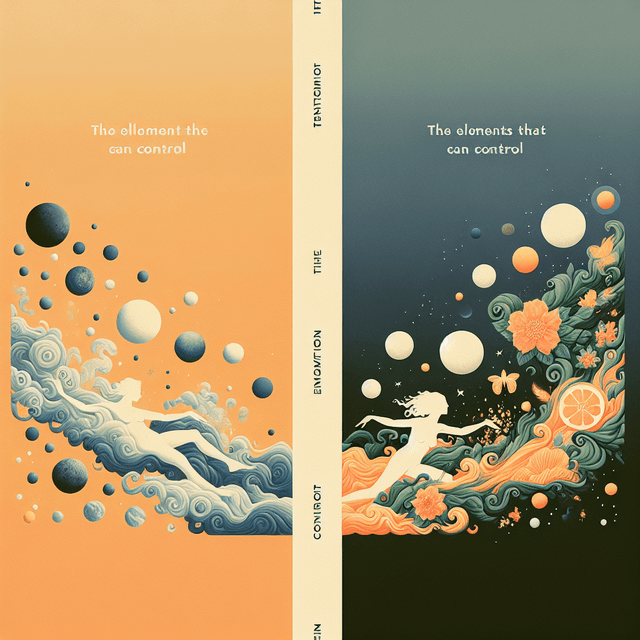Dichotomy Of Control
1 December 2023
Understanding the Dichotomy of Control
The dichotomy of control is a fundamental concept in Stoicism, emphasizing the division of all aspects of life into two categories: things we can control and things we cannot. Stoics believe that our internal thoughts, emotions, and beliefs are within our control, while external events, other people's opinions, and the natural world are beyond our control. This distinction forms the basis of Stoic philosophy, guiding individuals to focus their energy on what they can influence, rather than wasting it on what is beyond their power.
Relevance in Modern Life
In today's fast-paced and unpredictable world, the dichotomy of control offers invaluable wisdom. It encourages individuals to let go of anxiety and stress about external circumstances, and instead direct their efforts towards shaping their internal attitudes and responses. By adopting this mindset, one can cultivate resilience, emotional stability, and a sense of agency in the face of adversity. Whether dealing with personal challenges, work-related pressures, or global events, the Stoic principle of focusing on the controllable brings a sense of empowerment and peace.

Some men have made a distinction as follows, saying: "If a man has self-control and wisdom, he is indeed at peace as regards the attitude and habit of his mind, but not as regards the outcome.
- Seneca
Practical Applications
Practicing the dichotomy of control involves introspection and mindfulness. It prompts individuals to evaluate their concerns and discern whether they belong to the realm of the controllable or the uncontrollable. This practice fosters a more deliberate and intentional approach to life, leading to improved decision-making and emotional well-being. By embracing the Stoic perspective, people can navigate turbulent times with grace and composure, knowing that their inner tranquility is not contingent on external circumstances.
Challenges and Reflection
While the dichotomy of control offers profound insights, applying it in daily life can be challenging. It requires continuous self-awareness and a willingness to relinquish attachment to outcomes beyond one's influence. Moreover, reflecting on the dichotomy of control invites individuals to confront their fears and desires, prompting a deeper understanding of their own values and priorities. This ongoing reflection is a cornerstone of Stoic practice, fostering personal growth and resilience.

Embracing Stoic Wisdom
In essence, the dichotomy of control invites individuals to embrace Stoic wisdom and cultivate a mindset that is both adaptable and resilient. By aligning their focus with what is within their power, individuals can navigate life's uncertainties with a newfound sense of clarity and purpose. This timeless Stoic principle continues to inspire and guide individuals in their pursuit of inner peace and flourishing amidst the ebb and flow of existence.
themes
Resources for Further Exploration
For those interested in delving deeper into the concept of the dichotomy of control and its applications, there are numerous Stoic texts and modern interpretations available. From Marcus Aurelius's 'Meditations' to contemporary works by authors such as Ryan Holiday and Massimo Pigliucci, there is a wealth of resources to enrich one's understanding of this foundational Stoic principle.

Written by

Max writes is a online stoicism content writer. He is passionate about making stoicism accessible for everyone.